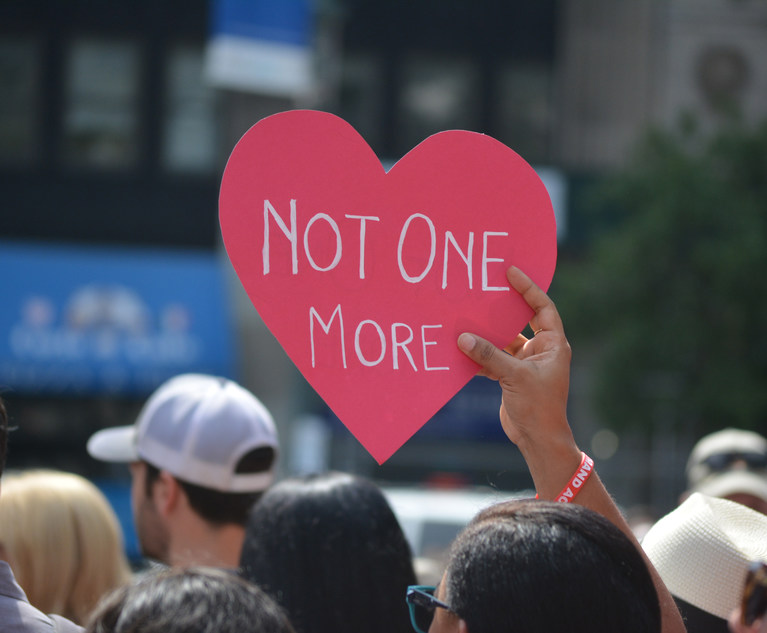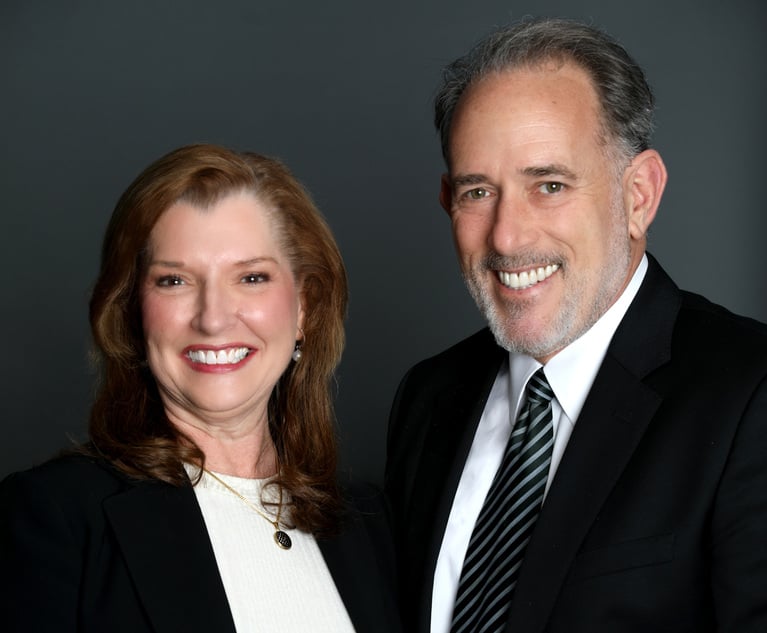Continuing to take a rare stance against the National Rifle Association, the state this week tried to convince a panel of federal judges to uphold a law that bans the sales of rifles and other long guns to people under age 21.
The Republican-controlled Legislature rushed to pass the law after a 2018 mass shooting at Marjory Stoneman Douglas High School in Broward County. Nikolas Cruz, who was 19 at the time of the massacre, pleaded guilty last year to murdering 17 students and staff members at the Parkland school that he once attended.
The ban on long-gun sales to people ages 18 to 20 was included in a sweeping school-safety law. Federal law already barred sales of handguns to people under 21.
The NRA challenged the constitutionality of the state age restriction, arguing in part that the law imposes an unconstitutional restriction on Second Amendment rights of people under 21, who are authorized to use weapons when they serve in the military or work in law enforcement.
Florida Republican leaders have long sided with the NRA on many gun issues but bucked the organization in the 2018 law and the resulting lawsuit. Chief U.S. District Judge Mark Walker last year upheld the law, finding that previous court opinions have given states leeway to impose Second Amendment restrictions in some instances.
But the national gun-rights organization asked the 11th U.S. Circuit Court of Appeals to reject Walker’s ruling, leading to Thursday’s hearing by a three-judge appellate panel in Miami.
NRA attorney John Sweeney argued that 18-year-olds in Florida “do not enjoy the same freedoms guaranteed the rest of the adults in this country” by the Second Amendment.
But Judge Charles Wilson pointed out that the law doesn’t prohibit 18- to 20-year-olds from possessing rifles, just from purchasing them.
“An 18- to 20-year-old may rely upon the kindness of parents and friends to be gifted a firearm. Other than that, they cannot obtain a firearm,” Sweeney said.
“Unless, of course, they’re in law enforcement or they’re in law enforcement. Isn’t that exempted?” asked Judge Robin Rosenbaum.
Sweeney said yes, but that the law excludes about 600,000 young Floridians from the “luxury” of having firearms, drawing more questions from Rosenbaum.
“They have the luxury of having it. They don’t have the luxury of buying it until they turn 21,” she said.
But not all Floridians are given firearms when they turn 18, Sweeney responded.
“The right in Florida has been turned into a privilege for few, and that is not right at all, as guaranteed by our Constitution,” he said.
Florida’s law is more restrictive than federal law, which allows private sales and transfers of handguns and long guns to 18-year-olds, and more restrictive than almost all other states’ laws, Sweeney said.
In his June 24 ruling, Walker wrote that he was following precedent in upholding the law, though he also described the case as falling “squarely in the middle of a constitutional no man’s land.”
Key legal arguments in the case hinge on a 2008 U.S. Supreme Court ruling in a case known as District of Columbia v. Heller. While the Heller ruling is broadly considered a major victory for gun-rights supporters, it also said certain “longstanding prohibitions” about guns do not violate the Second Amendment and established that the constitutional right to keep and bear arms is “not unlimited.”
The Heller case pointed to prohibitions on such things as felons and mentally ill people possessing guns. Walker concluded that restrictions on 18- to 20-year-old people buying guns were “analogous” to the restrictions cited in the Heller case.
But Sweeney said that there’s been no longstanding, widely accepted prohibition “that had this breadth of a prohibition on the purchase of firearms” for people under 21. Such a permissible restriction should be reflected in federal law or have been adopted by a majority of the states, he argued in part.
Rosenbaum noted that the age restriction is less restrictive than bans affecting mentally ill people and people who have been convicted of felonies, who aren’t allowed to possess guns.
Restrictions against purchases of guns by mentally ill people or people who have committed domestic violence were predicated on “an adjudication of dangerousness,” Sweeney told her.
“There has been no adjudication that 18- to 20-year-olds are too dangerous, too irresponsible, to be allowed to purchase firearms, to exercise the rights that all other adults have. This is not analogous. It’s not longstanding,” he argued.
Christopher Baum, a Florida deputy solicitor general representing the Florida Department of Law Enforcement, said age restrictions on possession and purchase of guns “are much older and have a much stronger historical tradition” than other prohibitions. The commissioner of the state law enforcement agency is a defendant in the case.
By the end of the 19th century, 19 states and the District of Columbia, had enacted firearm restrictions on people under age 21.
“The concept of a longstanding historical restriction is based on the idea that, if something is a longstanding restriction, it informs the original public understanding of what the Second Amendment protected and did not protect,” Baum said.
But how the three-judge panel will handle the case could be murky.
Wilson noted that the U.S. Supreme Court heard arguments in November in a Second Amendment case involving a New York handgun-licensing law. The court’s ruling in that case could have an impact on the type of analysis used in other Second Amendment cases, he said, asking if the panel should await the outcome of the New York case before ruling in the Florida dispute.
Baum said he couldn’t speculate about what the Supreme Court will do but argued that the Florida law follows a “longstanding regulation.”
“It need not also be analogous, but it is at least of a type with those listed in Heller, and for that reason the district court correctly concluded that this is a presumptively lawful regulatory measure under Heller and is therefore constitutional,” Baum said.
NOT FOR REPRINT
© 2024 ALM Global, LLC, All Rights Reserved. Request academic re-use from www.copyright.com. All other uses, submit a request to [email protected]. For more information visit Asset & Logo Licensing.


 Gun control protestors. Photo: ©vivalapenler – stock.adobe.com.
Gun control protestors. Photo: ©vivalapenler – stock.adobe.com.




